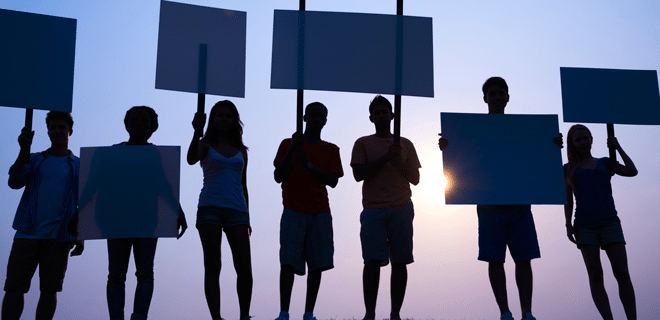As all of you savvy Internet people know already, Reddit went through a bit of a kerfuffle early this summer. Four senior female employee left the company in less than a month including admin Victoria Taylor and interim CEO Ellen Pao. The entire process generated a huge amount of media attention and you can read more about the details on Re/Code.
For those of you unfamiliar with Reddit, it’s a website made up of posts/links submitted by registered users and voted up or down by viewers. Popular ones rise to the top, unpopular ones disappear to the bottom. It’s divided into hundred of smaller sites called subreddits that focus on a particular topic, like movies, politics, or brilliant ideas you get in the shower. Users can subscribe to whatever individual subreddits they are interested in and content from the most popular ones appears on the main page.
Several of those subreddits that focus on racist, misogynistic or offensive topics and the restrictions that Reddit has placed on them become sticking points in a debate about free speech and online harassment that stretched over several months. More info on Reddit’s response to the situation and what communities have and have not been banned can be found here. There are a lot more details that I’m skimming over, but I want to leave the reporting to the reporters and focus on what this can teach us about PR and internet culture.
One of the root issues (in my opinion) is the line between free speech and online harassment. Reddit considers free speech to be a core part of its mission, which is why such a huge variety of subreddits exist. Whether users are entitled to the same First Amendment protections for freedom of speech on a privately-held site that still isn’t profitable despite being one of the top online destinations in the US is a separate question that I won’t get into here. But clearly, Reddit users expect to have the freedom to say what they want without retribution.
This is encouraged by the consequence-free online environment. People might send you nasty comments for saying something unpopular, but blocking them is as simple as closing your browser. But when communities form with the sole purpose of disliking a certain group of people, they promote those ideas in ways that are both subtle and overt.
Where do you draw the line between expressing an opinion and harassment? Is “I don’t like XXX” acceptable? What about “I hate XXX?” How about, “XXXs should all go die?” It’s a slippery slope. Reddit has said that it will punish actions, not ideas, but actions in the digital world are usually harder to define. Clicking through to a person’s Facebook page and spewing profanity onto it takes less than five minutes. It’s hard to argue that this is the same as assaulting someone physically, but it can still have an equally negative impact on an individual’s mental health or an organizations brand and reputation. As PR professionals, we spend a great deal of time promoting our clients through online channels and social media. It’s important for us to remember that these relationships can turn vicious quickly. Smart PR pros should have a crisis plan in place that includes online and social media crises.
The entire Reddit saga highlights the need for honesty, authenticity and transparency when dealing with online communities. Of course, these are important qualities for any organization (one of my colleagues has posted about them on this very blog), but they are especially important online. People see the Internet as an open, public forum and the speed of online communication means there’s less of a margin for error. People can overreact to a misunderstanding online (a poorly worded Tweet, a line in an interview taken out of context, etc) much more quickly than in the “real world.”
Personally, I think that Reddit’s harassment of Ms. Pao was completely inappropriate (she was compared to a Nazi and received a huge amount of hate mail, including death threats), but the site’s reaction tells us something important. Over and over, people claimed that they were fed up with being left in the dark and feeling like important decisions were being made without input from the community. Now that anyone with a Twitter account can easily express this kind of frustration, the need to keep your users well-informed is more important than ever. As PR professionals, we need to be aware of this and strive to be as open as possible when dealing with potentially sensitive online communities.

